On July 31 and August 1/2, purposefully disregarding the Swiss national holiday, the Service Prototyping Lab at Zurich University of Applied Sciences was represented at the premises of the Indian Institute of Technology, the former Indian School of Mines, in Dhanbad, the most populous city in the northeastern Indian state Jharkhand. Although the area is traditionally known for its coal and minerals industry, IIT (ISM) Dhanbad is also offering teaching, research and academic services including conference organisation in computer science fields. This matching profile with overlapping areas has triggered our interest, and thus Josef Spillner made the trip to offer guest lectures, tutorials and faculty-level discussions about future exchanges. This article reports on the days spent in Dhanbad.
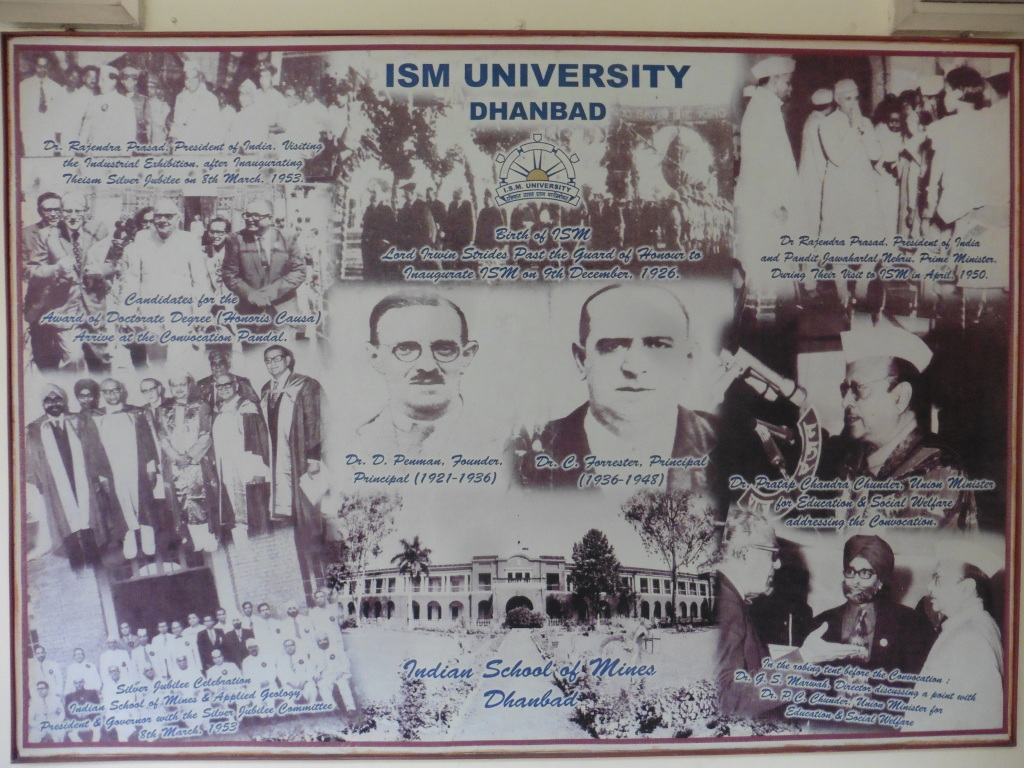 The IIT campus features colonial-era architecture in central buildings mixed with contemporary recent structures. The fast-paced development and whole-campus design of the university is visible in many ways which convey a truly academically aspiring and incentivising environment to learn and discover. Among the newer buildings is the Department of Computer Science and Engineering which hosted us for the visiting period, primarily facilitated by Sachin Tripathi, one of the professors in the department.
The IIT campus features colonial-era architecture in central buildings mixed with contemporary recent structures. The fast-paced development and whole-campus design of the university is visible in many ways which convey a truly academically aspiring and incentivising environment to learn and discover. Among the newer buildings is the Department of Computer Science and Engineering which hosted us for the visiting period, primarily facilitated by Sachin Tripathi, one of the professors in the department.
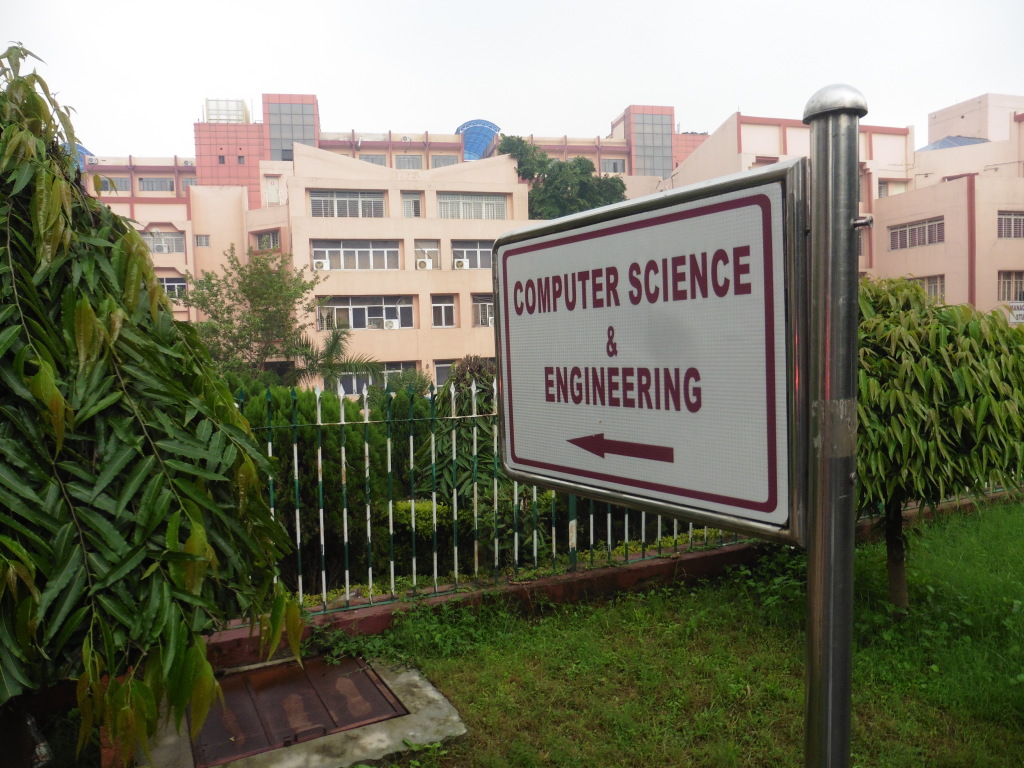
Consequently, the Department of Computer Science and Engineering provided a lecture hall in which educational and organisational appointments took place during two packed days. The schedule was tight. The formal part alone consisted of five appointments. First, a half-hour introduction talk about the mission and work of the Service Prototyping Lab was given to make us known to faculty, scholars and students of the department. Directly afterwards, a longer 90-minutes seminar was held on the topic of holistic quality consideration in software applications, primarily web applications and web services hosted in and delivered through cloud computing environments. Following a break, another seminar was held on modern research methods. Without any slides, a cyclic view was developed on a whiteboard along the clusters of topic definition, methodology planning, research execution and results communication. This seminar became quite interactive with many questions asked by participating students about errata in publications, journal selection and so forth.
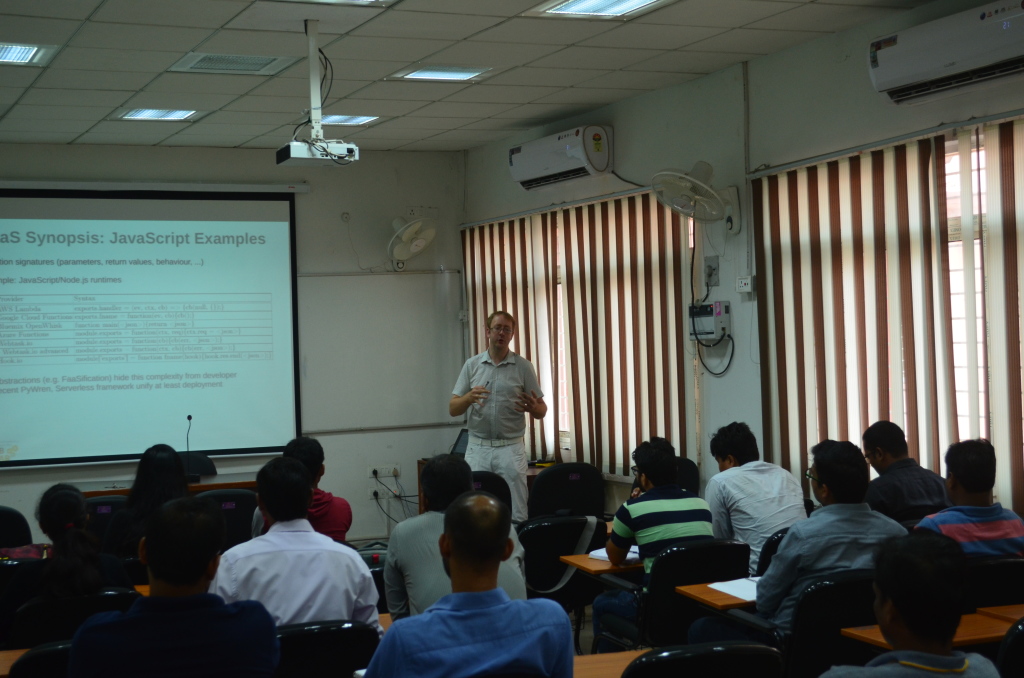
The second day started off with a condensed tutorial on using cloud functions, based on our earlier full-day tutorial at ICDCS’18. Several open challenges were explained with the intent to raise interest in participating students, many of which may still be looking for a topic to dive into. Furthermore, faculty were convened in order to get a mutual introduction across all subject areas in computer science and engineering and to find matching topics. In the remaining time, a doctoral research project on wireless sensor networking and data aggregation as well as the RAIT conference series were presented. In RAIT 2018, Piyush Harsh from the Service Prototyping Lab participated as invited speaker, therefore the conference was known to us already. Naturally, an invitation to submit to UCC 2018 and BDCAT 2018 co-organised by us in Zurich was passed along.
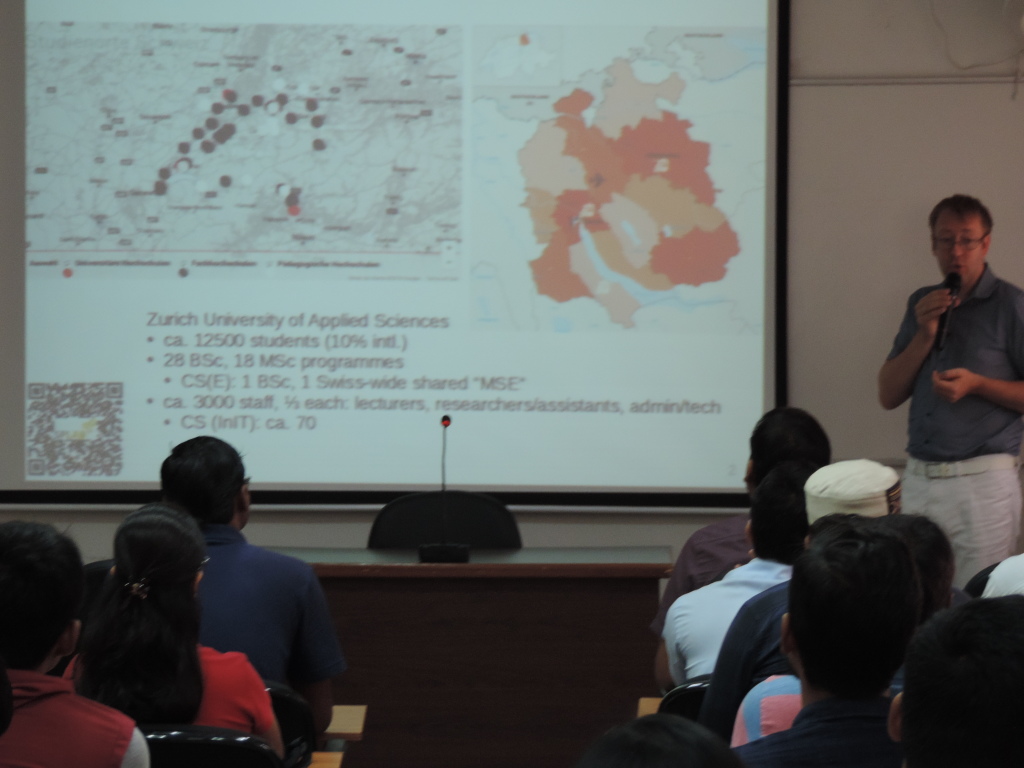
At IIT (ISM) Dhanbad, a very collegial self-administration based on rotation was evident on multiple accounts which could serve as role model for our governance in Swiss institutions. On the other hand, we also conveyed our views on rigorous and transparent research, including annual lab reports, voluntary carbon tax for living sustainability, dissemination channels, reproducibility and recomputability.
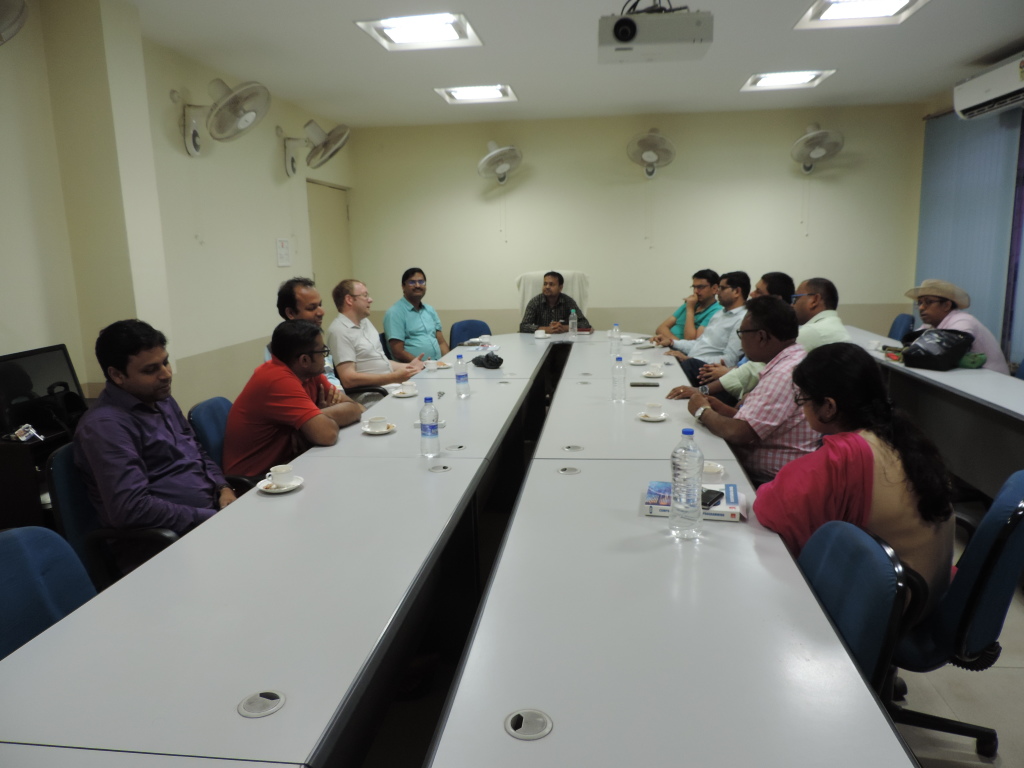
Mutual administrative and practical issues concerning collaborations in research and education were discussed, including aspects of registration/accreditation of such collaborations and instruments of funding available in both India and Switzerland. Of particular interest to us will be the Leading House call on South Asia in this respect.
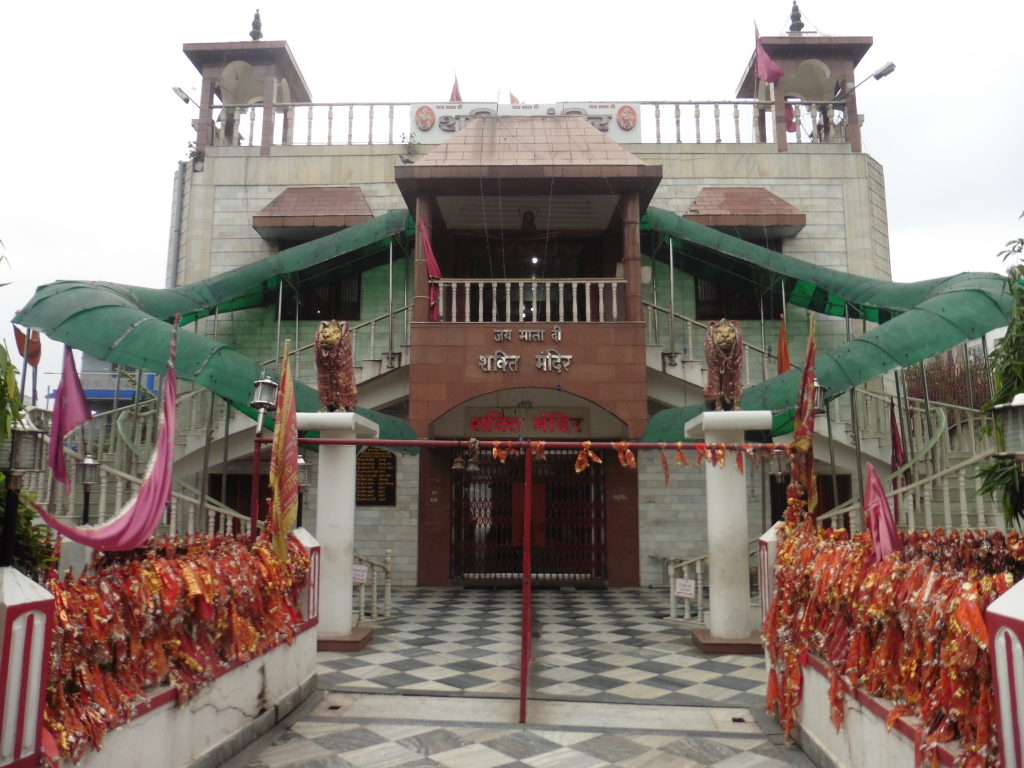
Despite vast differences in culture and history, it is always refreshing to see that some of the harder problems we try to solve are the same everywhere, and thus giving advice is made possible. Irrespective of the shortness of the stay, and the rather non-touristic nature of the immediate environment, the hosts organised a convincing schedule around the talks which allowed for a glimpse into the local life, economy and innovation.
